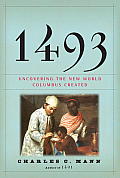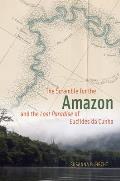Air Transport To visit most ranches in eastern Bolivia, you will need to hire a private plane. Pilots congregate at the outskirts of commercial airports, each in his (they are all men) own small hangar. When pilots assemble a full planeload of people (4-6 people, depending on the plane) with a single destination, they take off for that destination. As insurance, they keep several potential planeloads going, each hoping to travel to a different place, huddled in separate, mutually suspicious corners of the hangar and watching would-be passengers drift in. The group that reaches capacity first is selected.
To visit most ranches in eastern Bolivia, you will need to hire a private plane. Pilots congregate at the outskirts of commercial airports, each in his (they are all men) own small hangar. When pilots assemble a full planeload of people (4-6 people, depending on the plane) with a single destination, they take off for that destination. As insurance, they keep several potential planeloads going, each hoping to travel to a different place, huddled in separate, mutually suspicious corners of the hangar and watching would-be passengers drift in. The group that reaches capacity first is selected.
Passengers must recognize this situation and scurry from hangar to hangar, looking for others who are going their way. On no account believe the people who drive in pickups around the hangars, bellowing that they have cheaper rides. Do not get into their trucks. They will take you several miles away, where you will be effectively confined to one hangar, hoping that your group fills up.
Most planes and their destinations do not have lights. You therefore must fly in daylight. If you do not have a ride by mid-afternoon, begin to worry. Recognizing your situation, pilots will offer to fly smaller-than-capacity groups — even solo passengers — at inflated rates. You must recognize that they, too, are worried. If they don't fly somebody somewhere, they don't eat.
In the plane, check to make sure that the seat is attached to the floor. Inspect the gas gauge before takeoff. Under no circumstances sit next to the woman carrying a huge sack of grapefruit. Make sure that your pilot is not doubling up on your flight by giving some of your passengers flying lessons. If you do end up on a flight-school run, insist that the pilot, not the student, land the plane.
Travel insurance would be a good idea, if it were possible to obtain.
Ground Transport
When driving in southern Niger, do not bother looking for gas stations. Few exist, and those few, thanks to an agreement the Niger government was more or less forced to sign with France, the former colonial power, sell French gasoline at extortionate rates. The gasoline is shipped from neighboring Libya and Nigeria to France, then reshipped to Niger.
Drivers should look instead for roadside clusters of teenage boys, often with protective cloth around their heads, standing by tables full of pop bottles. Plastic racks of 24 bottles on their heads, the boys walk across the Nigerian border, fill up the bottles with cheap Nigerian gas, and stopper them with rags. They sell the gas, bottle by bottle, to drivers — fill-up by Molotov cocktail.
Prices are somewhat fluid. It is useful to know the price of gas in neighboring nations. If you have a driver, it is useful to ensure that he is of a different ethnicity than the gas-sellers before dickering commences. Bargain, but try not to annoy the vendors. If soldiers with guns show up in the middle of the transaction, it can be useful to have the gas boys on your side in the subsequent discussions about the soldiers' "fees."
When filling up, it is important for the driver or the teenager to have a fine filter for the gas. You will be regarded as a Western fussbudget if you ask the boy pouring your gas to put out his cigarette. It is perfectly acceptable to complain about the small children playing hide-and-go-seek around the tables, though. Fear of spillage is acceptable.
Hotels
When you arrive in Manila, select your hotel carefully. Some island resorts cater to "mackers," middle-aged men, many of them Australian, who visit Asian countries to acquire by cash payment the temporary services of young women. Some Manila hotels cater to these people. Manila hotels with shuttle services to macker resorts are musts to avoid.
If you end up staying in such a hotel, do not answer the room phone, especially if the call comes after midnight. Do not answer the knock on your door. Do not speak to the young woman who is knocking, or the shadowy entrepreneurial figure standing to the side. (These rules do not apply to mackers, of course.)
The Philippines is an Asian country. If you enter a bar in which the male clientele is more than three-quarters non-Asian, inspect your surroundings. Is the average age gap between male and female customers more than 20 years? Are there no visible signs of marital connection between any of the opposite-sex couples at the tables? Consider going to another bar.
A Really Good Book
 These blog posts are supposed to sound like genial messages from a friend while actually being advertisements for a commercial product (my book). Creepy, right? Hoping to cancel the whiff of bad faith, at least a little, I thought I would talk about other writers' books — stuff that I could tout with a clear conscience, because I get no benefit from it.
These blog posts are supposed to sound like genial messages from a friend while actually being advertisements for a commercial product (my book). Creepy, right? Hoping to cancel the whiff of bad faith, at least a little, I thought I would talk about other writers' books — stuff that I could tout with a clear conscience, because I get no benefit from it.
While writing this book, I had huge help from a friend, Susanna Hecht, a UCLA geographer who knows more than practically anybody about Amazonia. She let me read her forthcoming book, The Scramble for the Amazon and the "Lost Paradise" of Euclides Da Cunha, the amazing tale of Brazil's greatest writer (da Cunha); his unfinished masterpiece on the Amazon (Lost Paradise); his calamitous marriage, which ended, along with his life, in a pistol duel; his previously hidden role in the great international scramble to seize the Amazon in the 19th century; his epic journey into the furthest reaches of the great river; and much else besides.
One thing I particularly liked is Susanna's treatment of Lost Paradise, which da Cunha left unfinished at his death. In the last few years we've seen all too many efforts by publishers to "complete" unfinished books. Every one that I have encountered has felt fraudulent — a carpenter's-gothic fake, patched together in ways unimagined by the author, with transitions sketched in by unknown editorial hands.
Susanna doesn't do that. Instead we get the fragments as da Cunha wrote them, woven through with his diaries, letters and the accounts of friends. We don't see the final product, which doesn't exist; instead we get to eavesdrop on the process of creation, on the author wrestling with his ideas. Because da Cunha was a fascinating polymath — an engineer-geographer-philosopher-journalist-diplomat in the midst of extraordinary personal and intellectual turmoil — following his thoughts is an amazing ride.